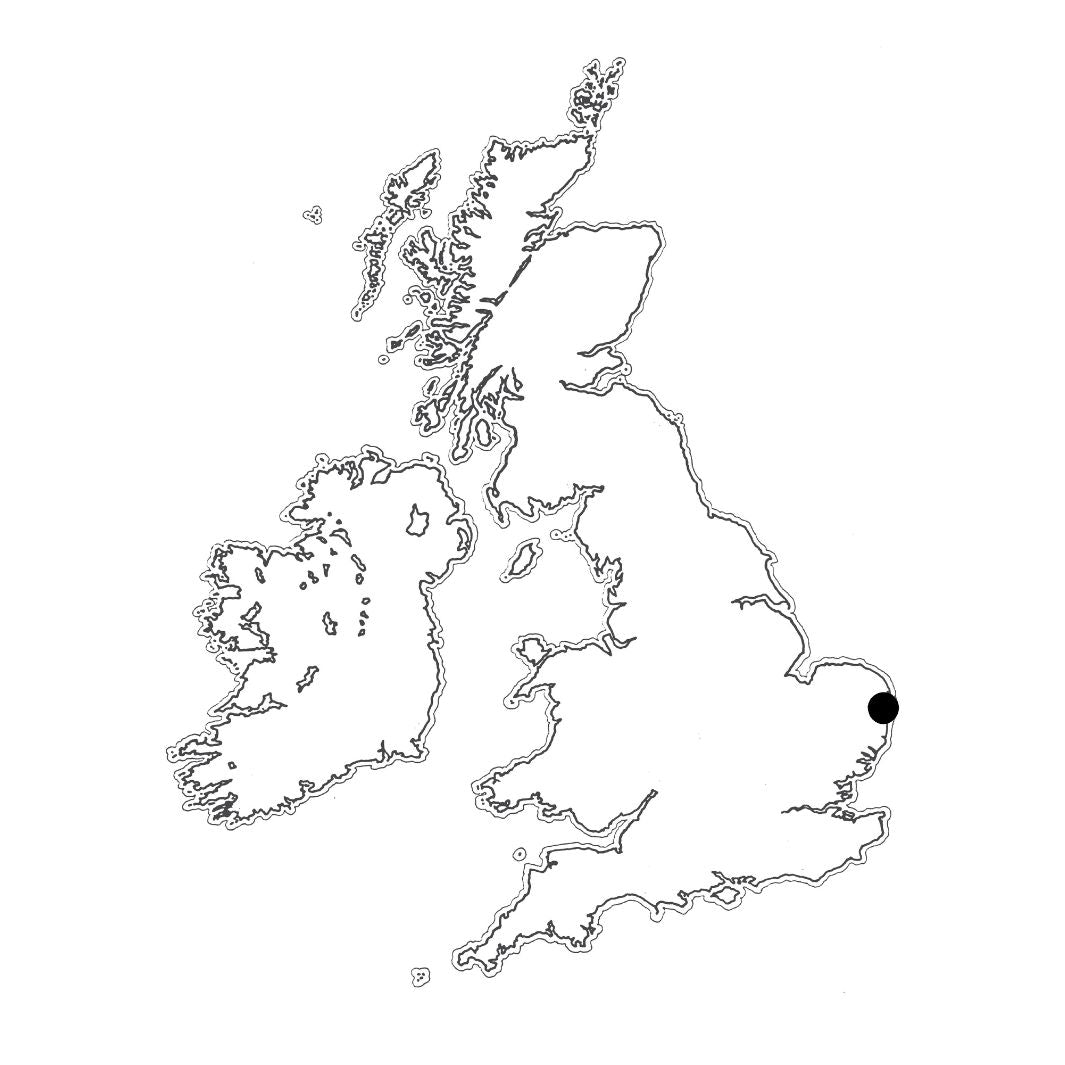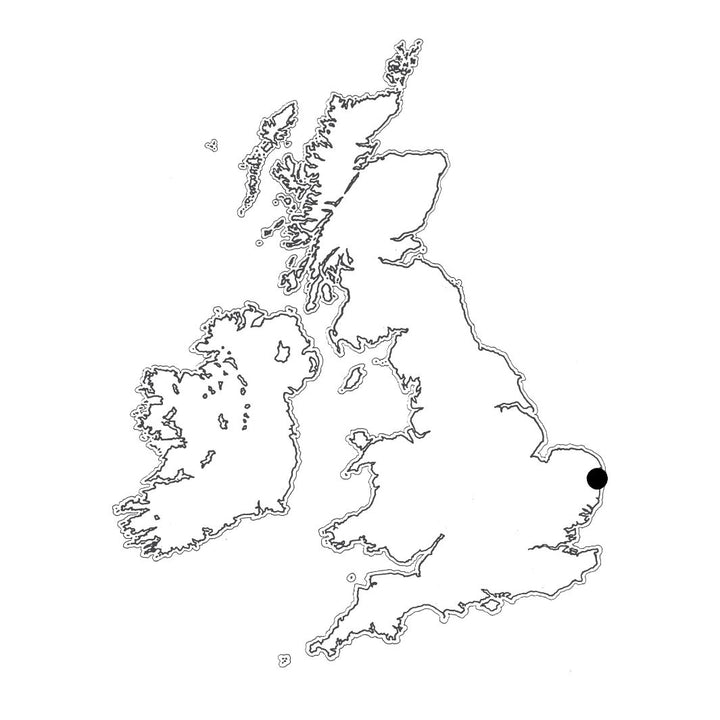The production of St Jude cheese involves a collaboration between cheesemaker Julie Cheyney who makes the cheese and Jonny Crickmore, producer of Baron Bigod, who provides the milk from his Montbéliarde cows.
Originally produced in Hampshire by cheesemaker Julie Cheyney, St Jude and its sister cheese St Cera are now made at Jonny Crickmore's Fen Farm Dairy in Suffolk, home of Baron Bigod. Julie is still the cheesemaker, but the milk comes from Fen Farm's herd of Montbéliarde cows: a French breed whose rich, high-protein milk is well suited for making cheese. The still-warm milk is piped straight from the milking parlour to the cheese room, where cultures are added. The curd for St Jude is set very slowly until Julie, judging by sight and feel, deems it to be ready, at which point it is carefully hand-ladled into small, delicate moulds.
St Jude is normally dried after its arrival and then frequently turned and assessed for what environment it should be matured in depending on the growth of its rind and ripeness of its texture. Darker patches and mould spots of green and white often develop throughout the seasons; wild moulds are perfectly safe to eat, and do not negatively affect the cheese's flavour. When they are ready to be sold, the delicate little cheeses are placed in small wooden cases to protect them on their journey to the customer.








